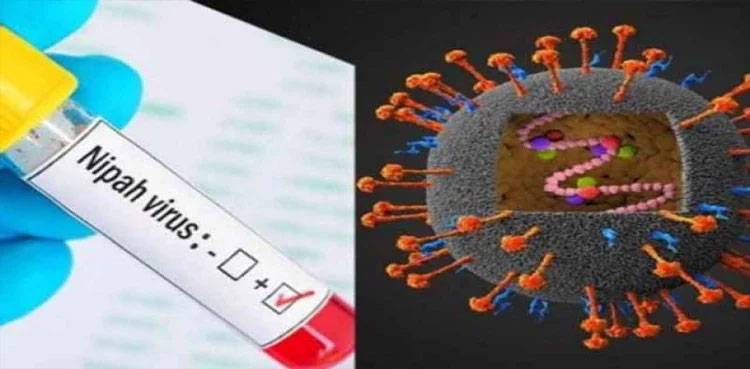Dangerous Nipah virus threat: Government issues advisory over potential threat
Shares

The Sindh Health Department has issued a warning concerning the potential dissemination of the dangerous "Nipah" virus, which has already afflicted a significant number of individuals in India. This advisory, conveyed through a letter from the Director of Health in Sindh, urges medical superintendents, directors, and livestock departments at hospitals across the state to exercise extreme caution in light of this viral threat. The Nipah virus is notorious for its rapid transmission among both humans and animals, raising concerns about its contagious nature.
Moreover, the advisory delineates the symptoms associated with the Nipah virus, encompassing manifestations such as fever, headaches, body aches, and, in severe cases, even coma. This comprehensive warning aims to ensure that healthcare professionals and authorities remain vigilant and well-prepared to respond to any potential outbreak. The dire consequences of this virus necessitate swift action and informed decision-making within the medical community.
The origins of the Nipah virus trace back to 1998 when it was initially identified during an outbreak among pig farmers in Malaysia and Singapore. It possesses the ability to infect humans directly through contact with the bodily fluids of infected bats and pigs, and there have been documented cases of human-to-human transmission.
Scientists are deeply concerned about the possibility of a highly transmissible strain of Nipah emerging from bats, as the virus is suspected to have existed among flying foxes for millennia. This lingering threat underscores the critical importance of preemptive measures and ongoing research into the virus's behavior and transmission patterns.
In the face of this potential public health crisis, it is imperative that both healthcare professionals and the general population remain well-informed and vigilant. The Nipah virus's rapid transmission and severe symptoms demand a proactive approach to containment and treatment.
The issuance of this advisory by the Sindh Health Department is a crucial step towards safeguarding the region's health, and it serves as a reminder of the ongoing need for global vigilance in monitoring and addressing emerging infectious diseases. Public health efforts and scientific research must continue to evolve to effectively combat threats like the Nipah virus.
